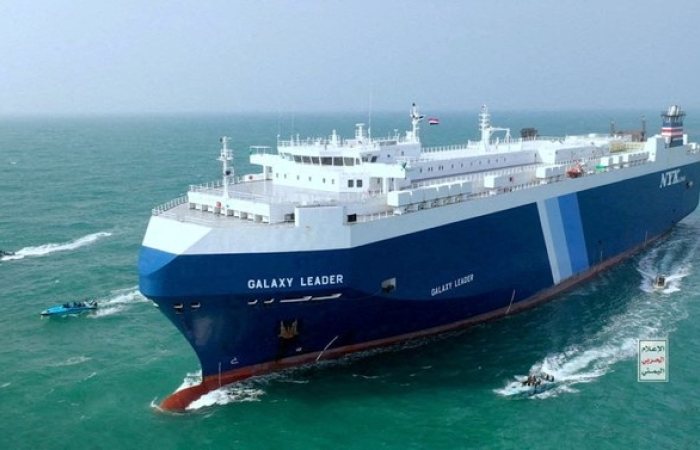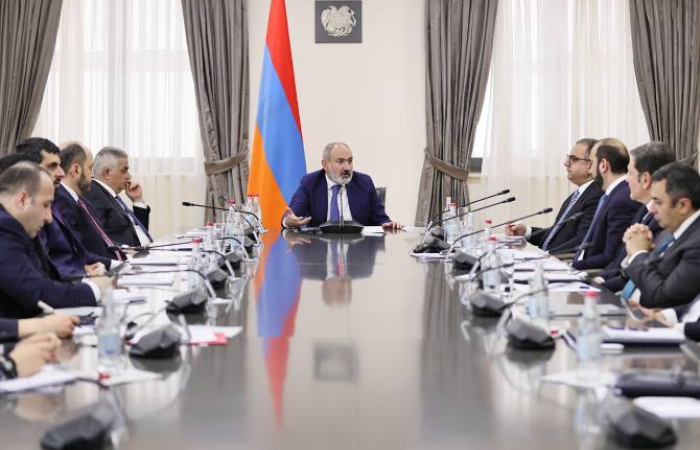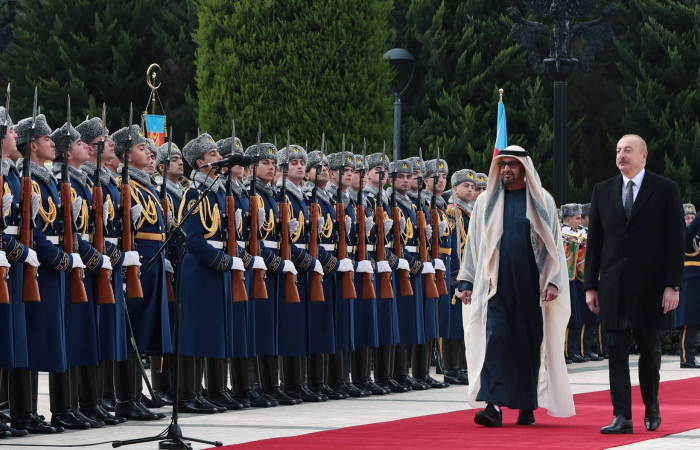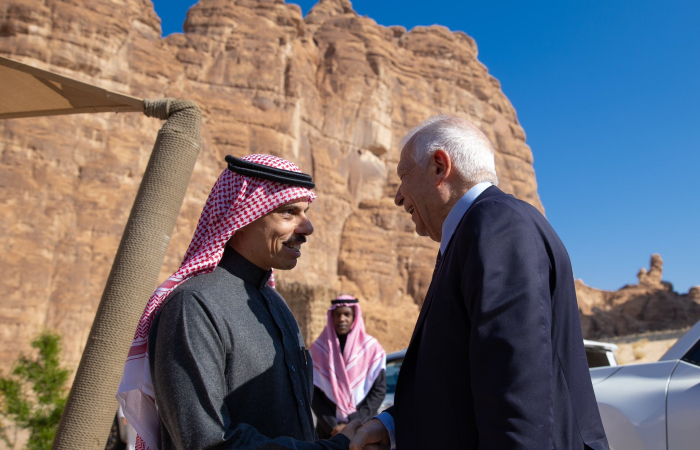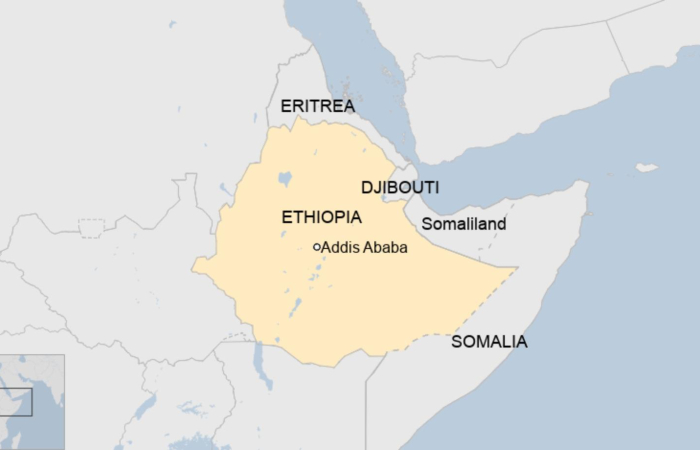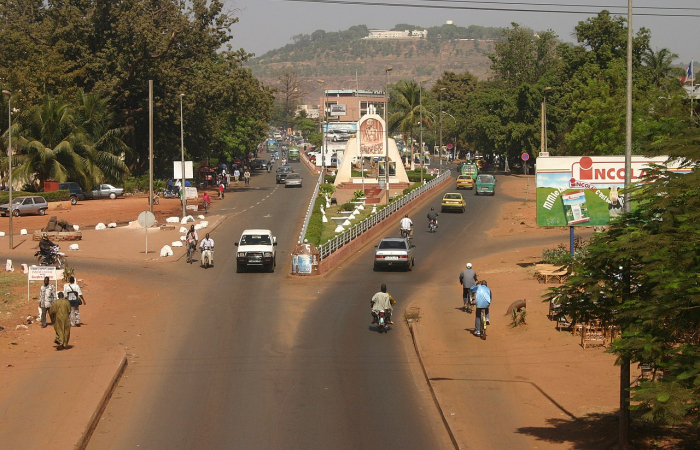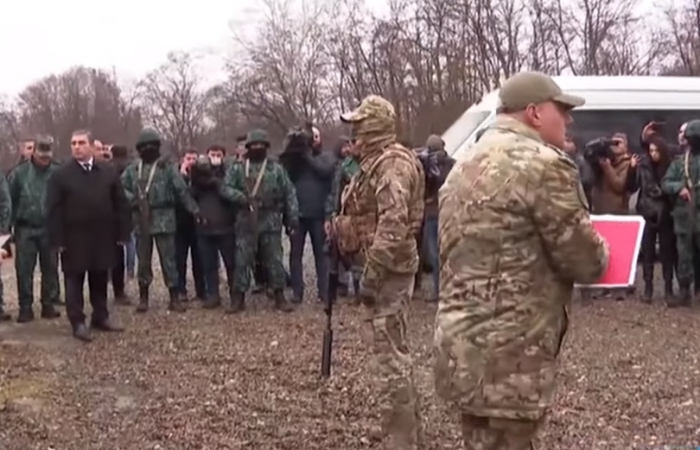Editor's choice
This is a members’ functionality. Please
Sign upNews
Trending
UAE president, Mohamed bin Zayed, in Baku for talks with Aliyev (Updated)
9 January 2024
A high level delegation from the United Arab Emirates, led by President Sheikh Mohamed bin Zayed, travelled to Baku on Monday afternoon (8 January) for talks with president Ilham Aliyev of Azerbaijan. On Tuesday, President Mohamed bin Zayed and his delegation held talks with the president of Azerbaijan and other Azerbaijani officials. The official website of the Azerbaijani president also listed a number of documents agreed by the two sides that were signed in the framework of the visit.
At the start of the visit, Sheikh Mohamed laid a wreath at the tomb of Heydar Aliyev, the founder of modern Azerbaijan, as well as at the Eternal Flame monument, according to UAE state news agency, Wam.
The President was accompanied by Sheikh Mansour bin Zayed, Vice President, Deputy Prime Minister and Chairman of the Presidential Court; Sheikh Abdullah bin Zayed, Minister of Foreign Affairs; Sheikh Hamdan bin Zayed, Ruler's Representative in Al Dhafra Region; Sheikh Mohammed bin Hamad, Adviser for Special Affairs at the Presidential Court; Ali Al Shamsi, deputy secretary general of the Supreme National Security Council; Dr Anwar Gargash, diplomatic adviser to the President and former minister of state for foreign affairs; Suhail Al Mazrouei, Minister of Energy and Infrastructure; Dr Sultan Al Jaber, Minister of Industry and Advanced Technology; Mohamed Al Suwaidi, Minister of Investment; Ahmed Al Sayegh, Minister of State; and Mohammed Al Balushi, ambassador to Azerbaijan.
President Aliyev later in the evening hosted an official dinner for the Emirati guests.
No information has been released regarding the nature of the talks under discussion, but for sure Azerbaijani is keen to learn from the experience of the UAE in hosting COP28 in December, as it prepares to host COP29 in Baku later this year. COP29 will be the biggest international event ever held in the South Caucasus.





